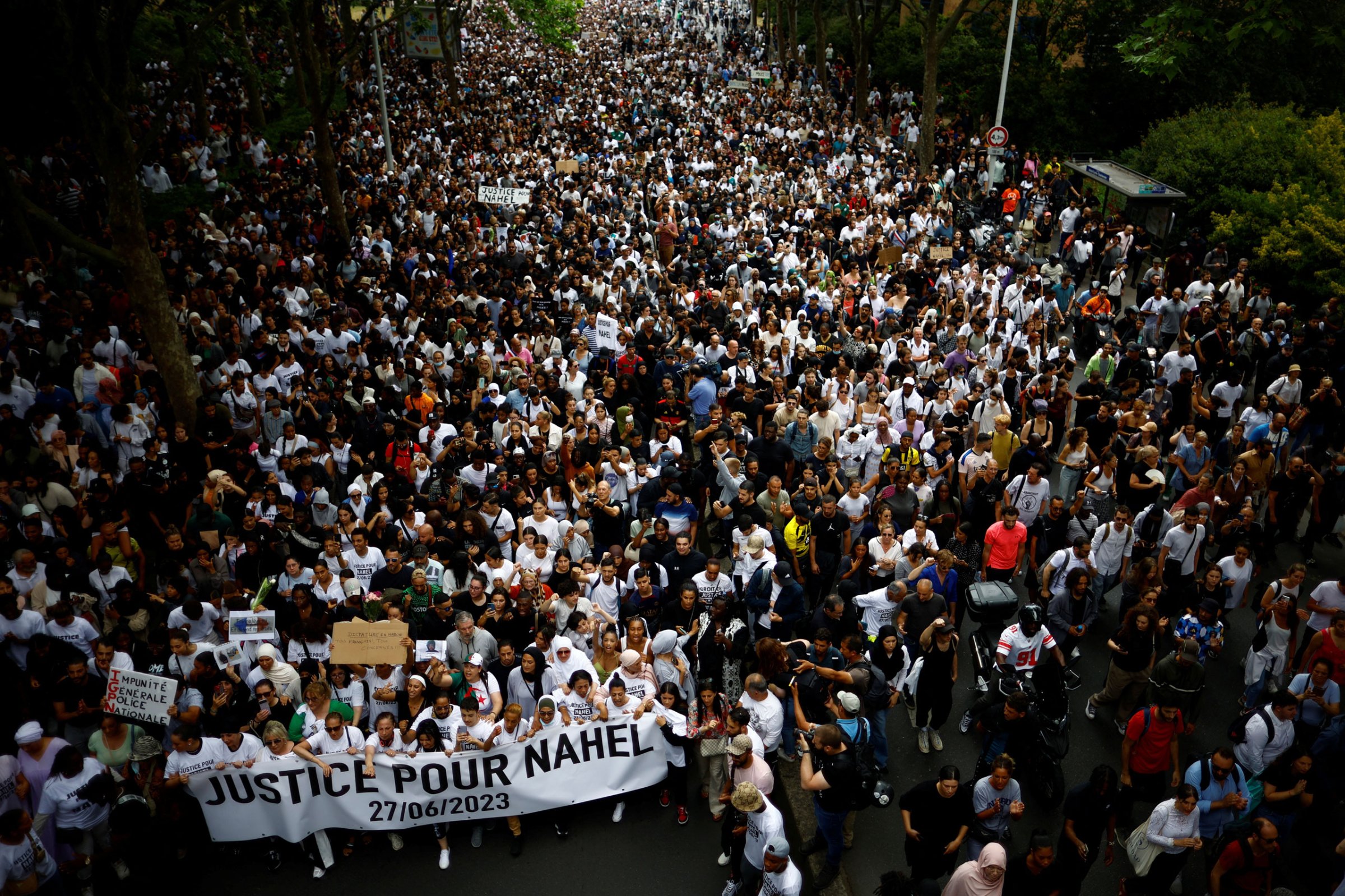Paris neighborhoods will be put under curfew Thursday evening as authorities anticipate a third night of unrest that has rocked cities across France since a 17-year-old boy of North African descent was shot dead in Nanterre by police Tuesday. The killing has also raised questions about police brutality in France and its treatment of its Arab and African minorities.
Clashes broke out on Tuesday when an officer fatally shot Nahel M—a French citizen of Algerian and Moroccan descent—in the chest during a traffic stop. Rioters have torched and smashed cars and buildings, including a school, and disrupted buses and trams. Protesters also threw fireworks and firecrackers at police officers, who met them with teargas.
As many as 170 officers were injured during Wednesday’s clashes, while 180 protesters have been arrested since the unrest broke out. France’s President, Emmanuel Macron, has also criticized the killing as “inexplicable” and “inexcusable.”
The police officer responsible has been arrested and charged with voluntary homicide.
Gerald Darmanin, France’s Minister of the Interior, said 40,000 police officers will be mobilized across the nation as the curfew is imposed. The president of the Île-de-France region, Valérie Pécresse, called for transportation to stop running at 9 p.m. local time Thursday to prevent damage by “thugs and hooligans,” according to the BBC.
The news comes hours after Nahel’s mother, Mounia, led a tribute march with over 6,000 attendees chanting for justice in Nanterre, a working-class suburb located a 15-minute train ride outside of Paris. “‘What am I going to do now?’ I devoted everything to him,” she said in a social media video. “I’ve only got one, I haven’t got 10. He was my life, my best friend.”
Macron has called for peace and has also criticized the damage caused by the protests as “absolutely unjustifiable.” Chairing a crisis meeting Thursday, Macron said: “Clearly the emotion that comes with the death of a young man calls for contemplation and calm, and it’s what the government has constantly called for. I think this is what should continue to guide the next hours and the tributes.”
Below, a selection of images that capture the unrest in France.
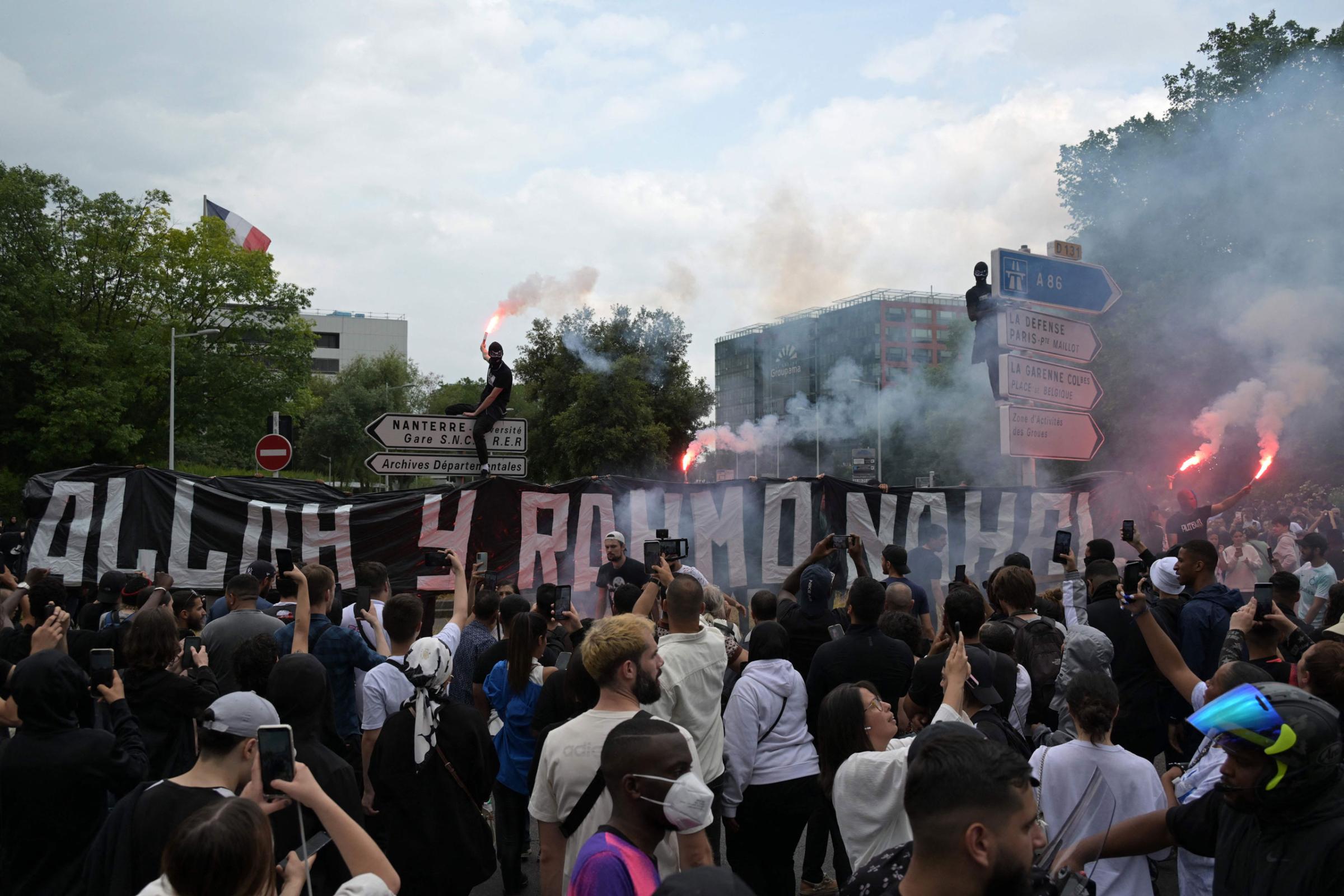
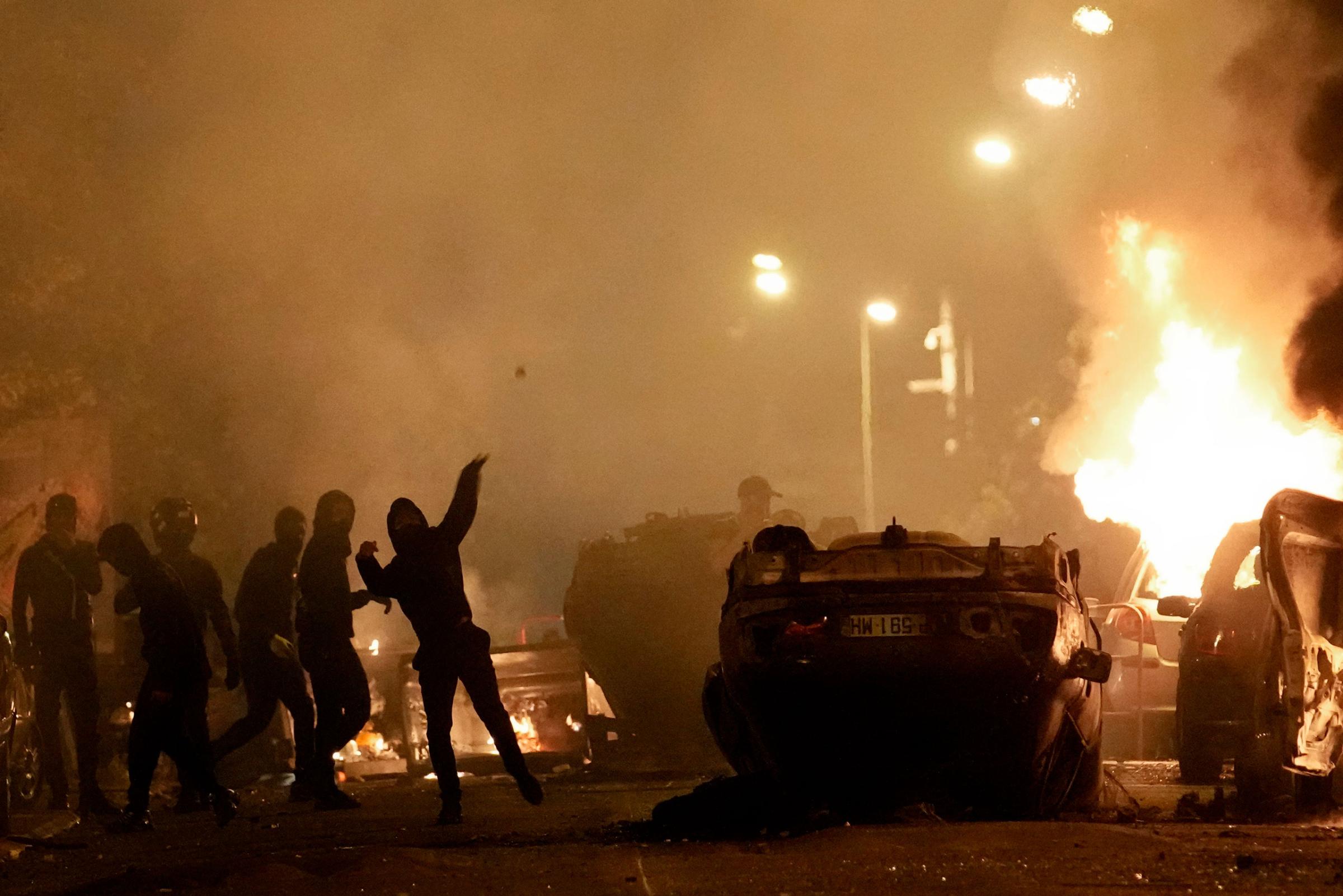
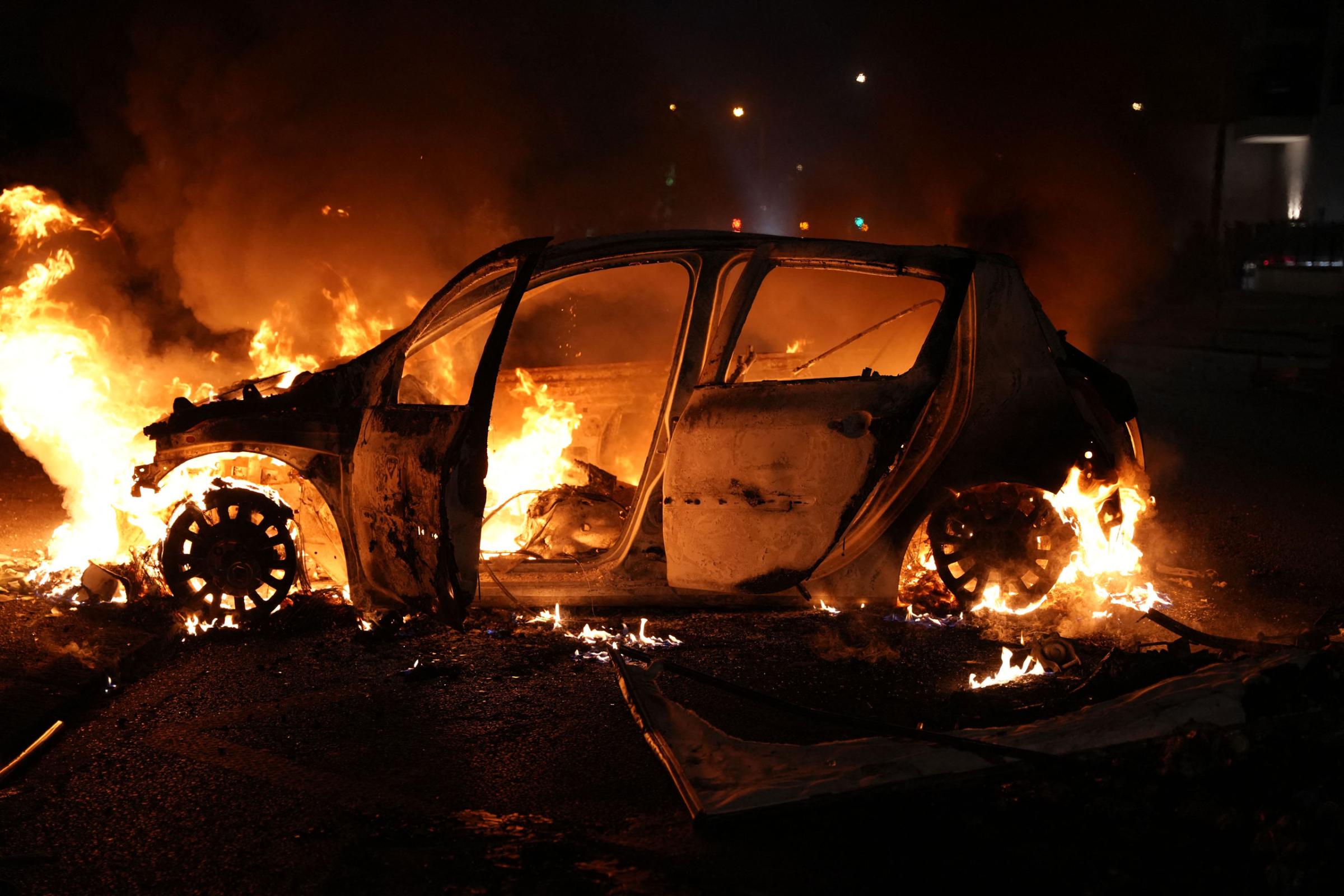
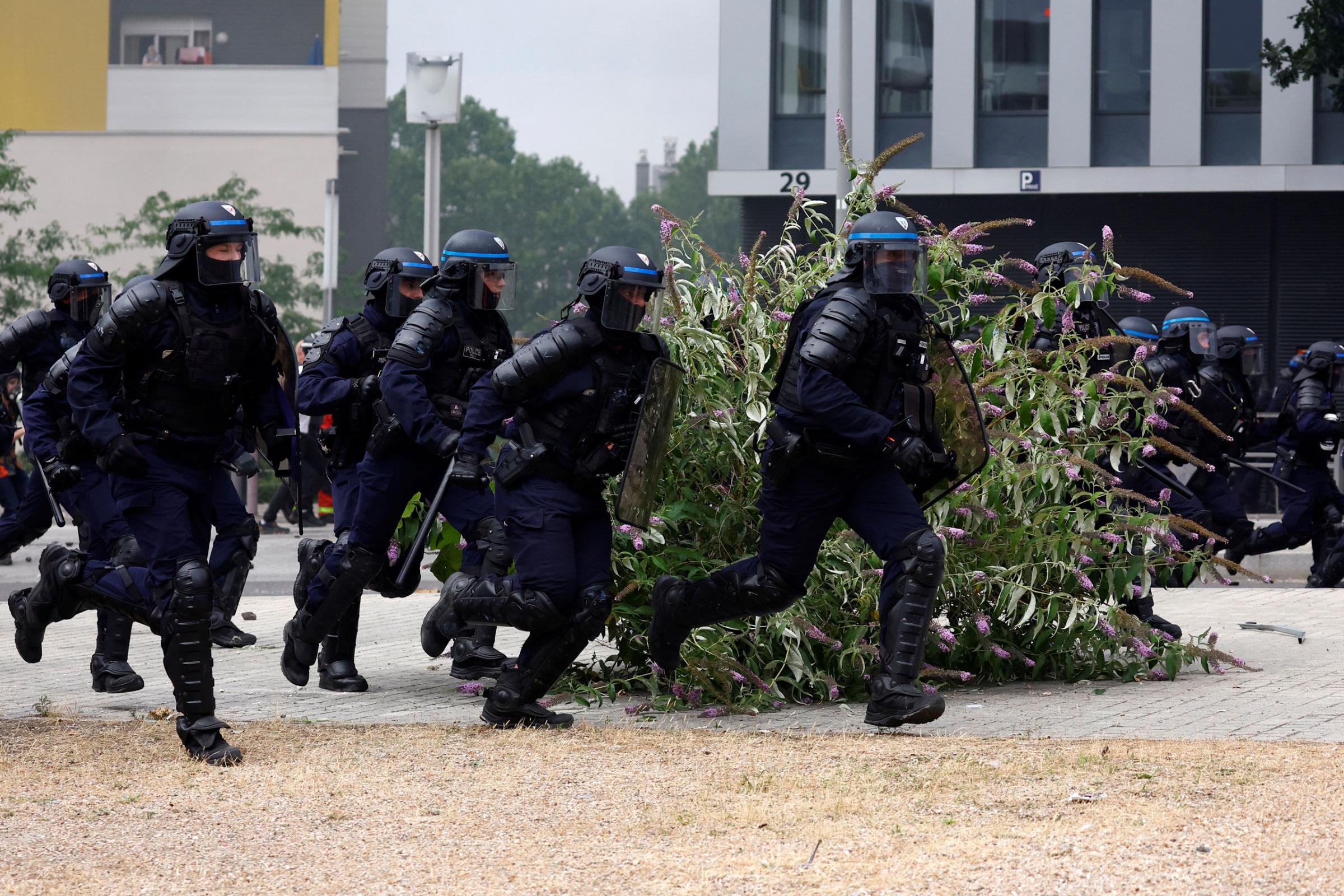
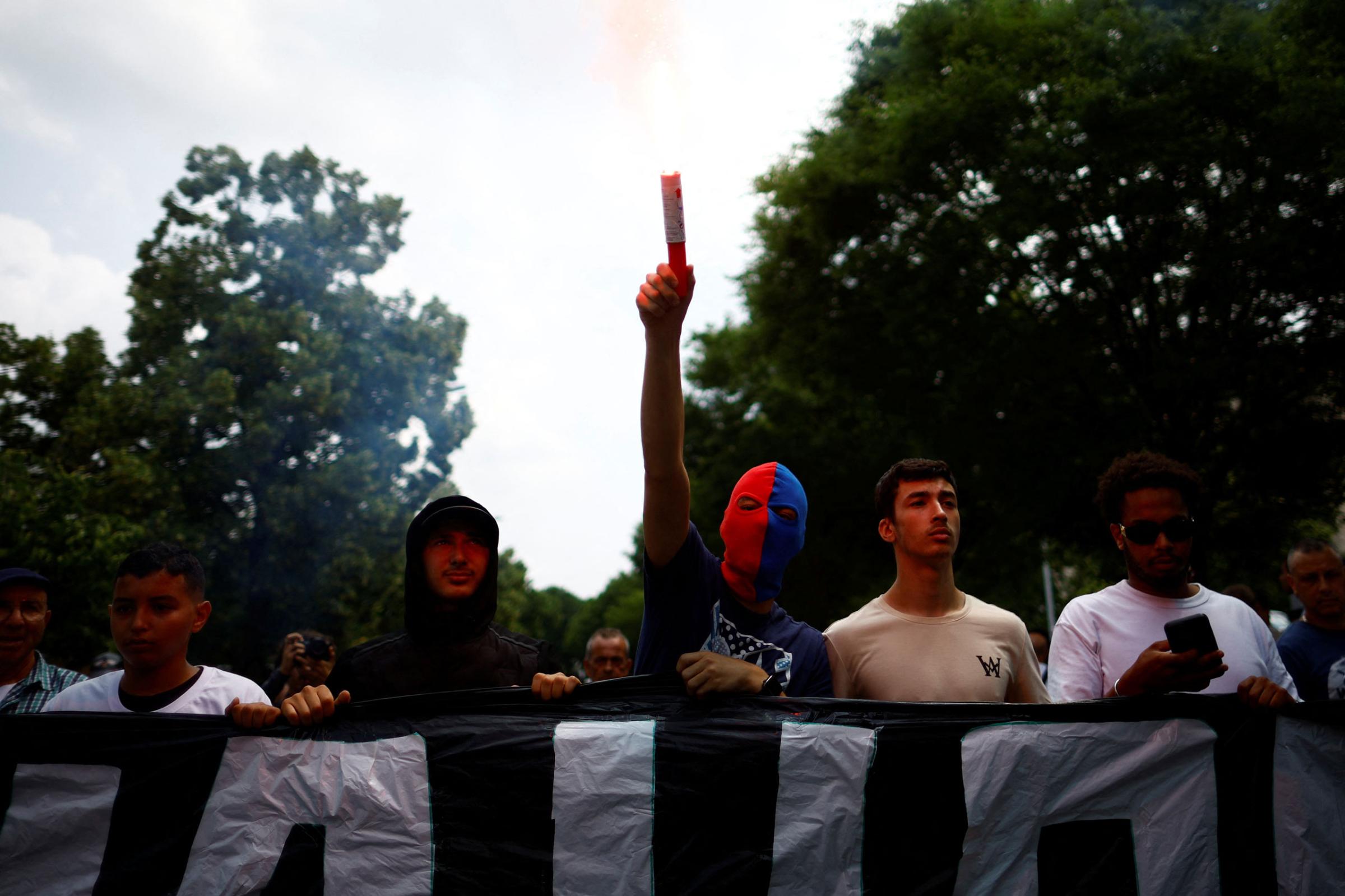
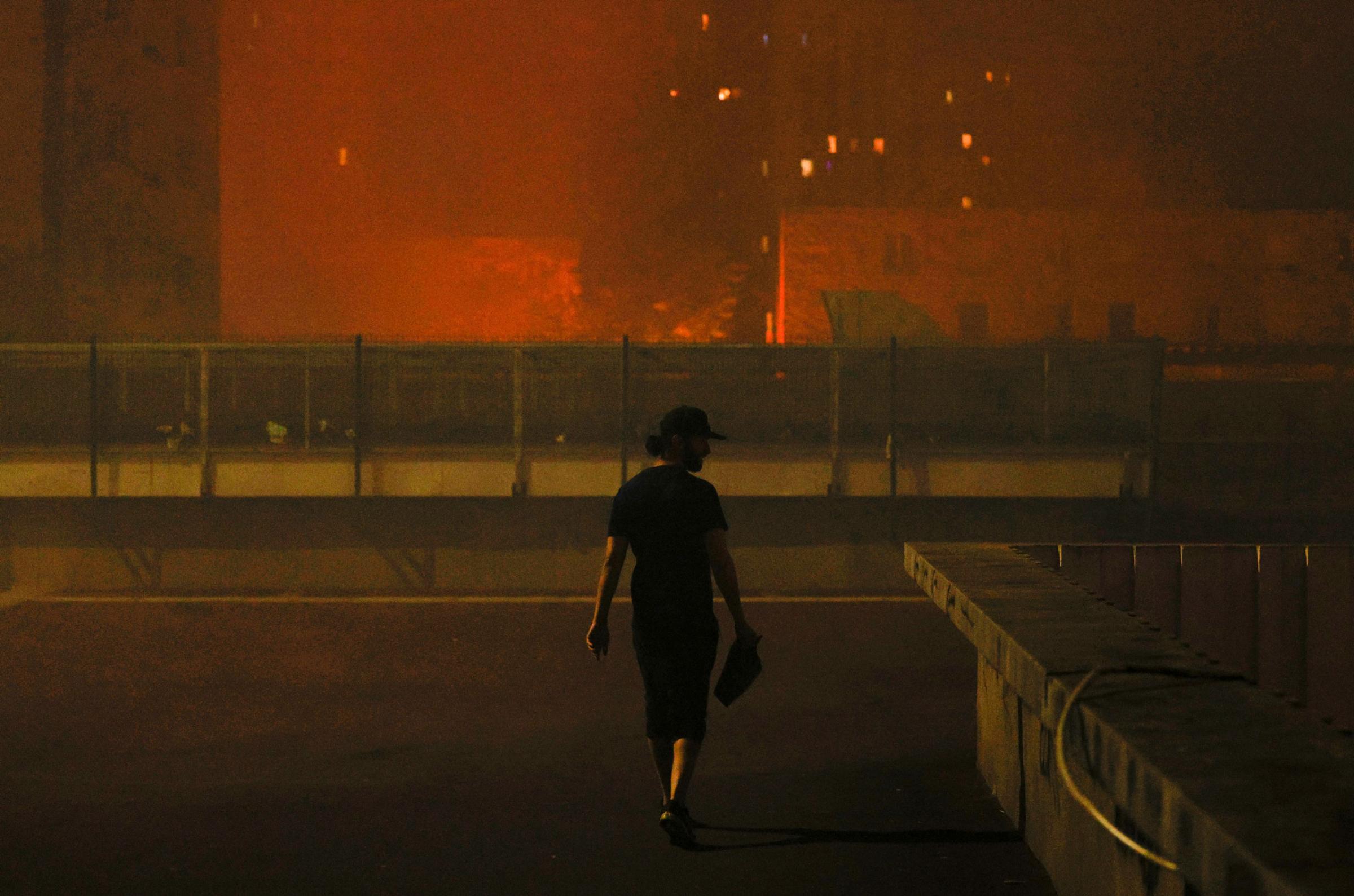
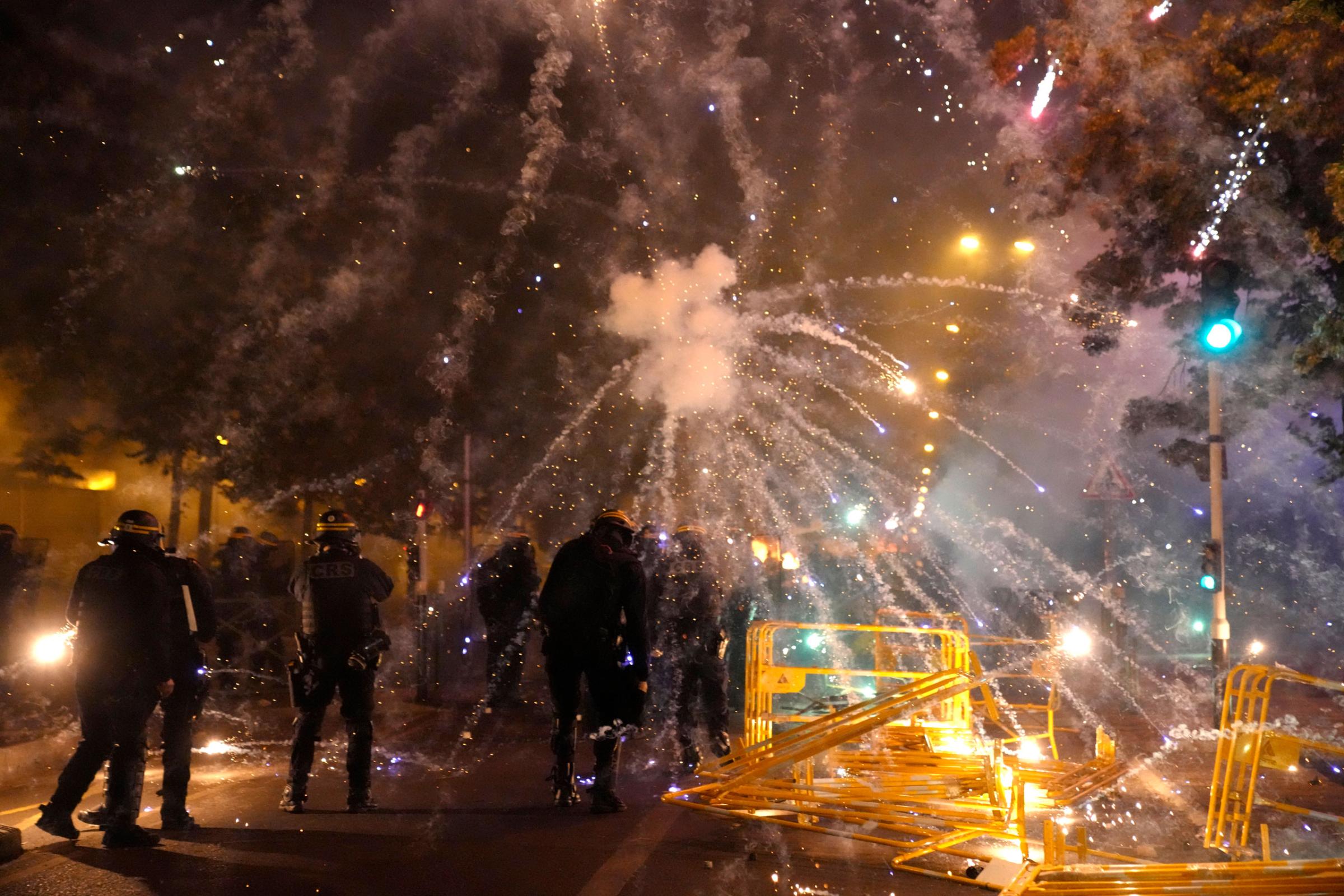
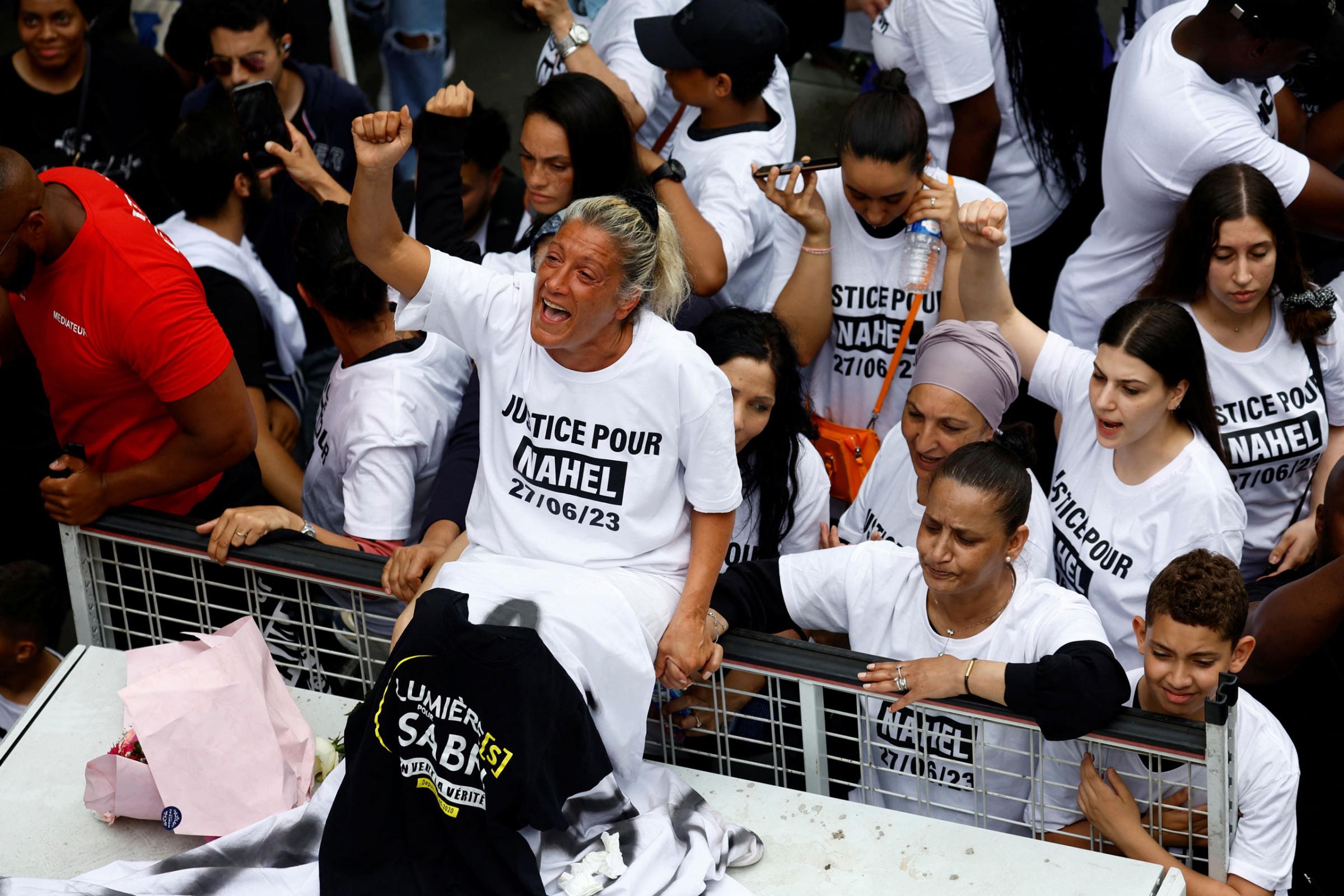
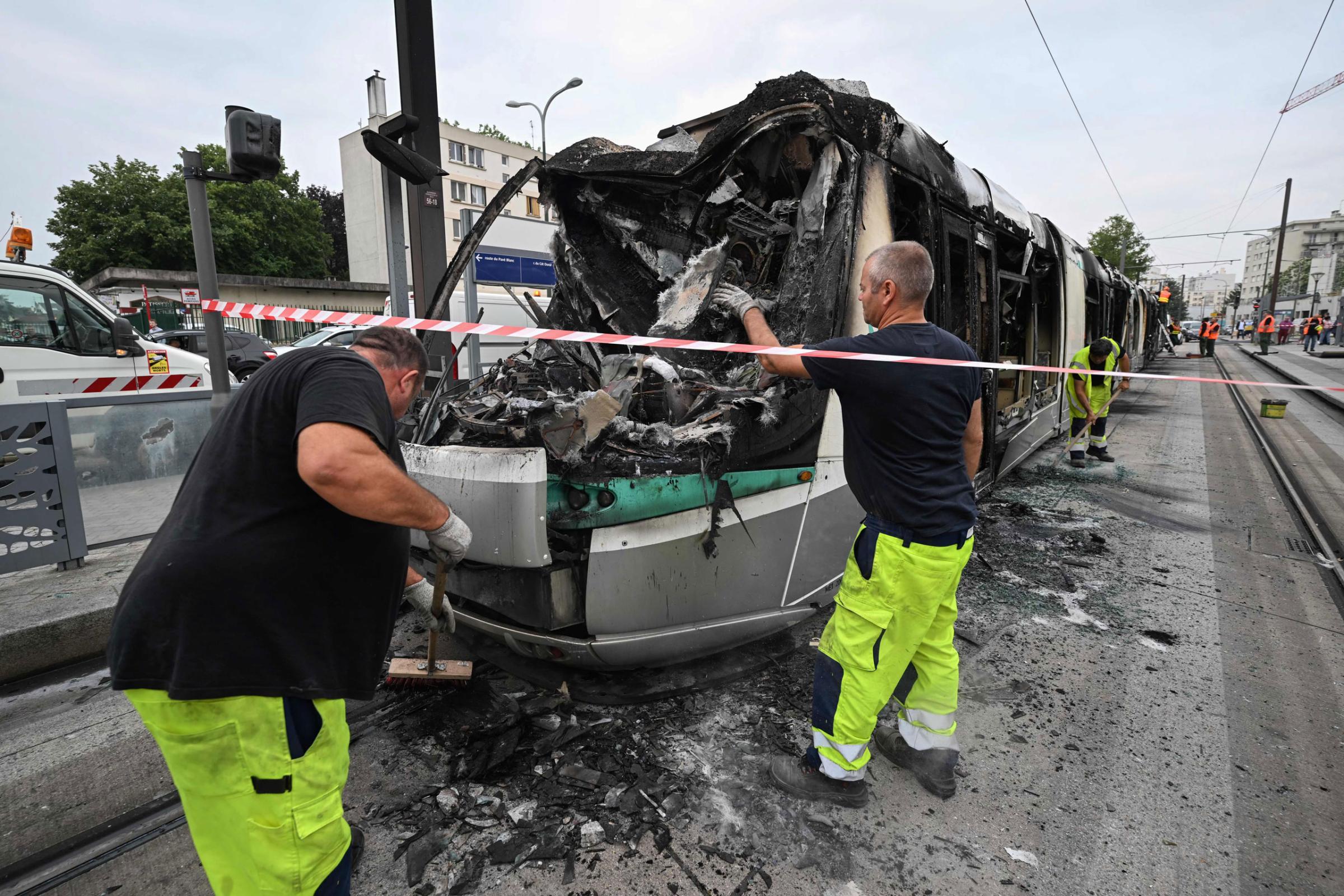
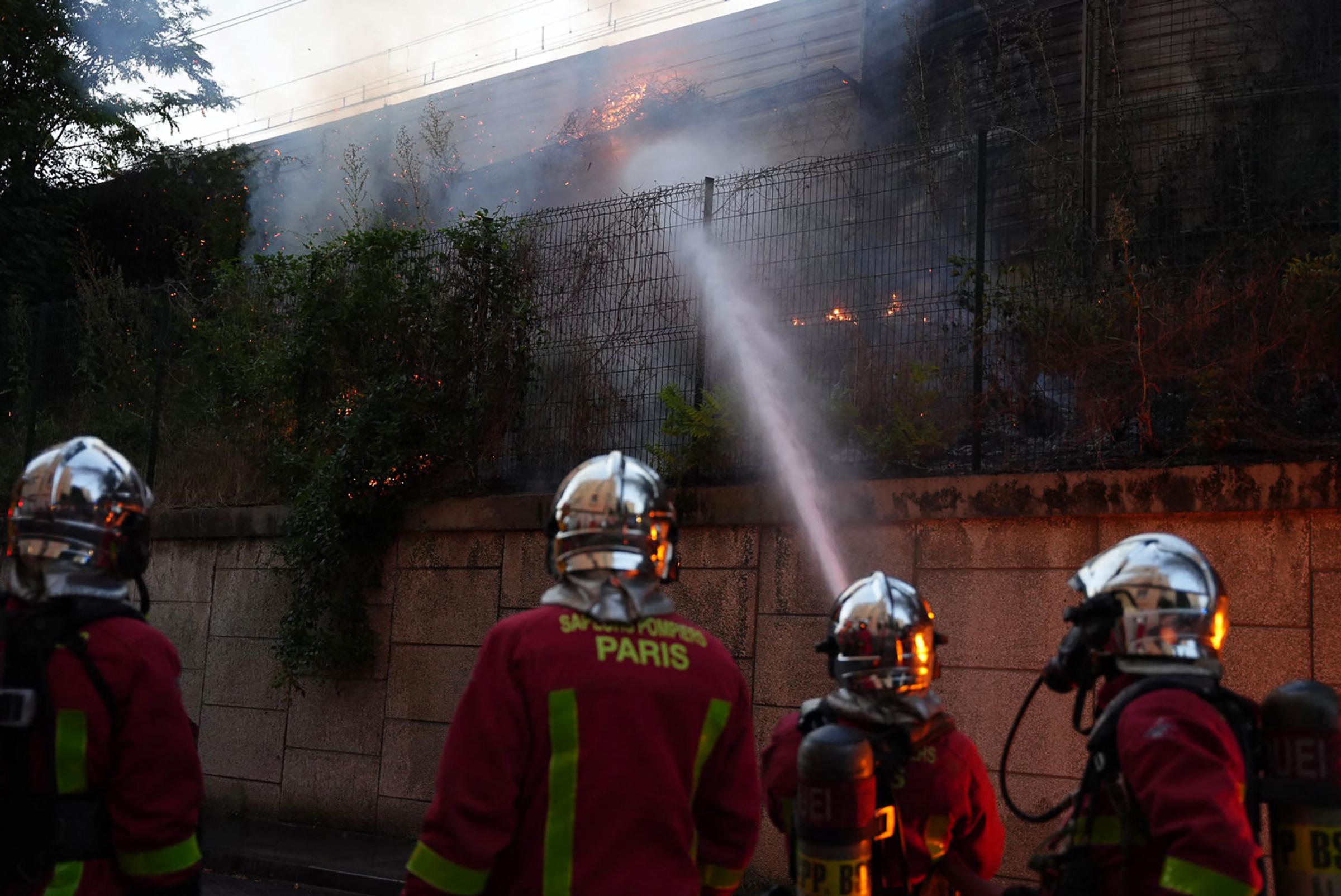
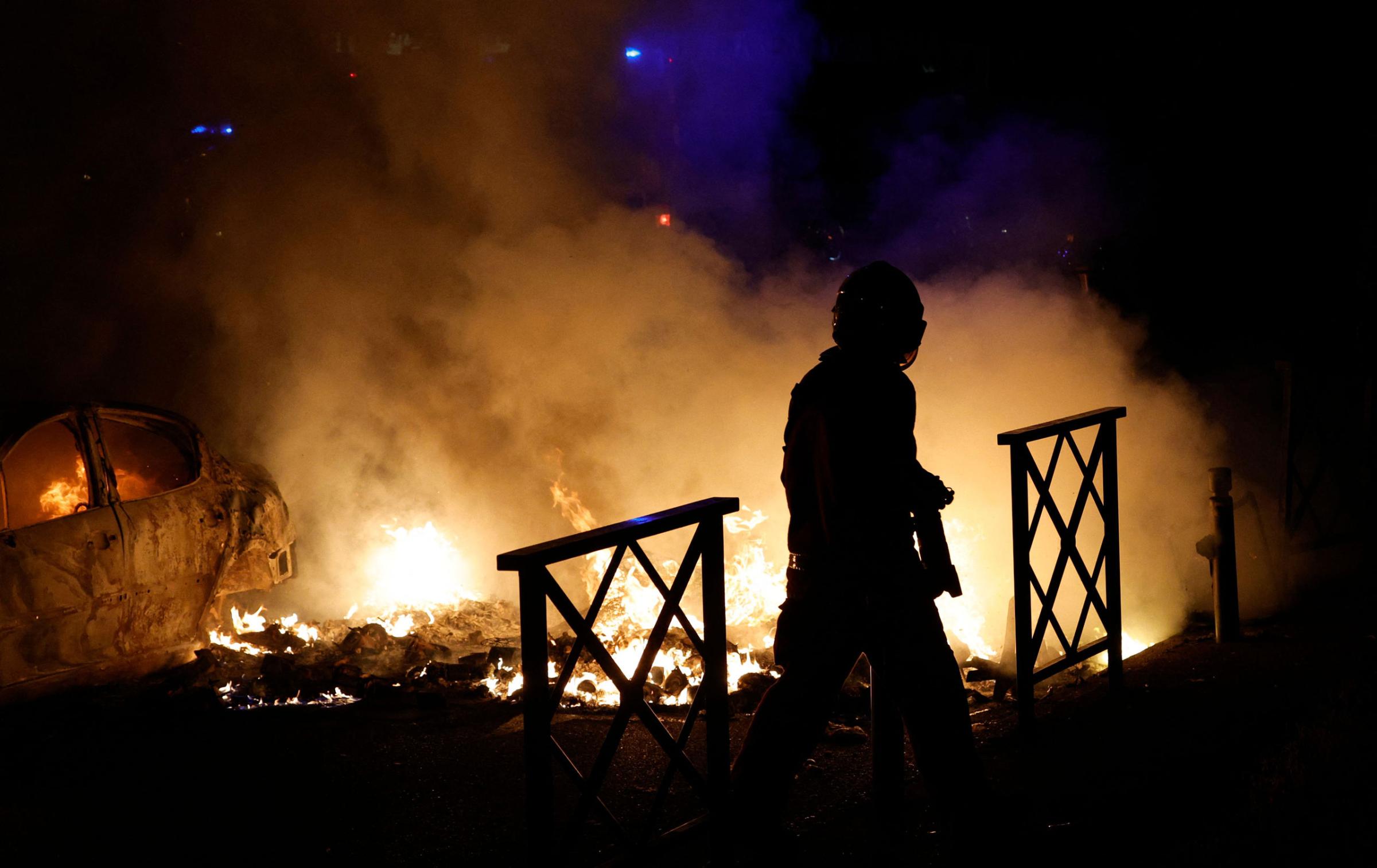
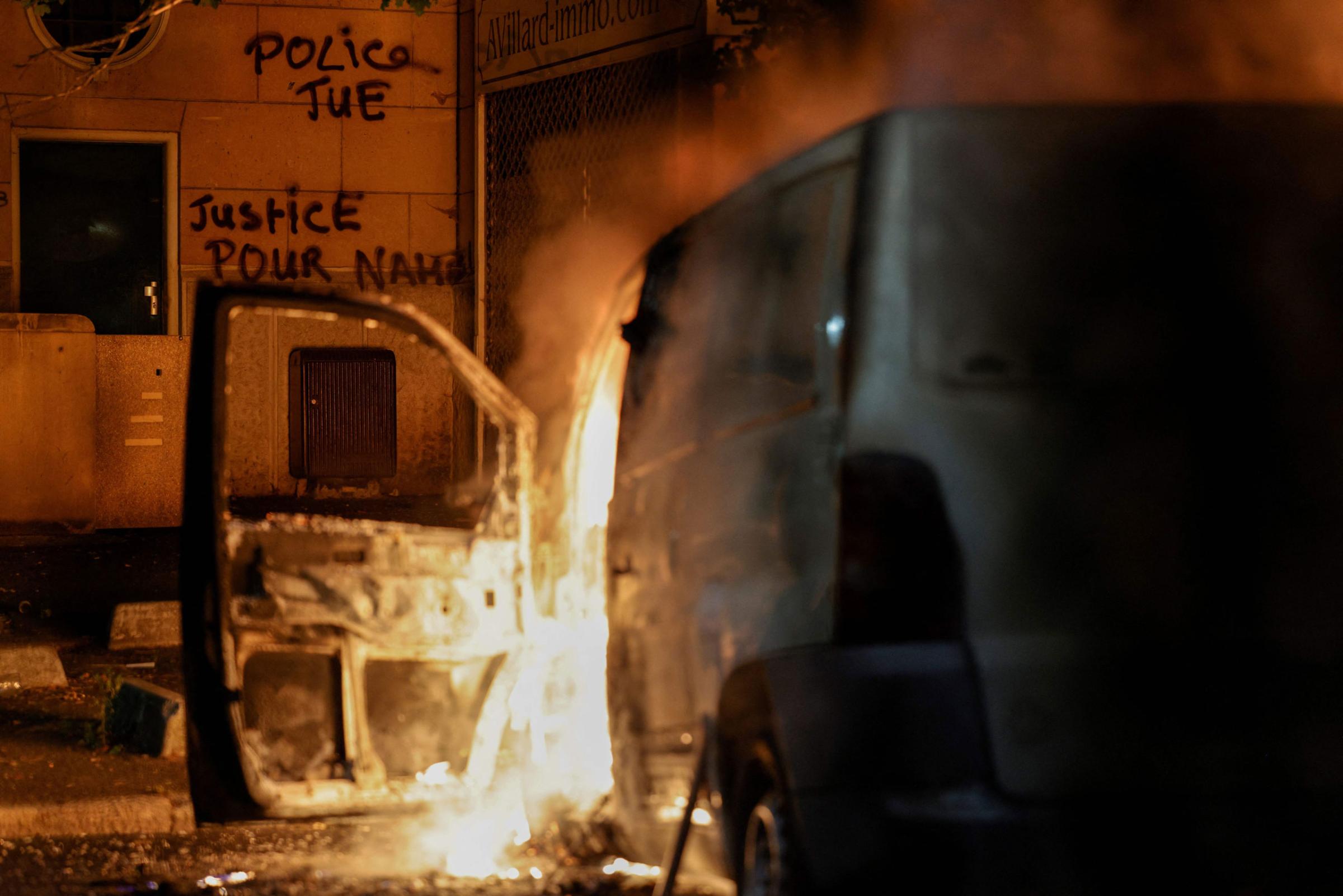
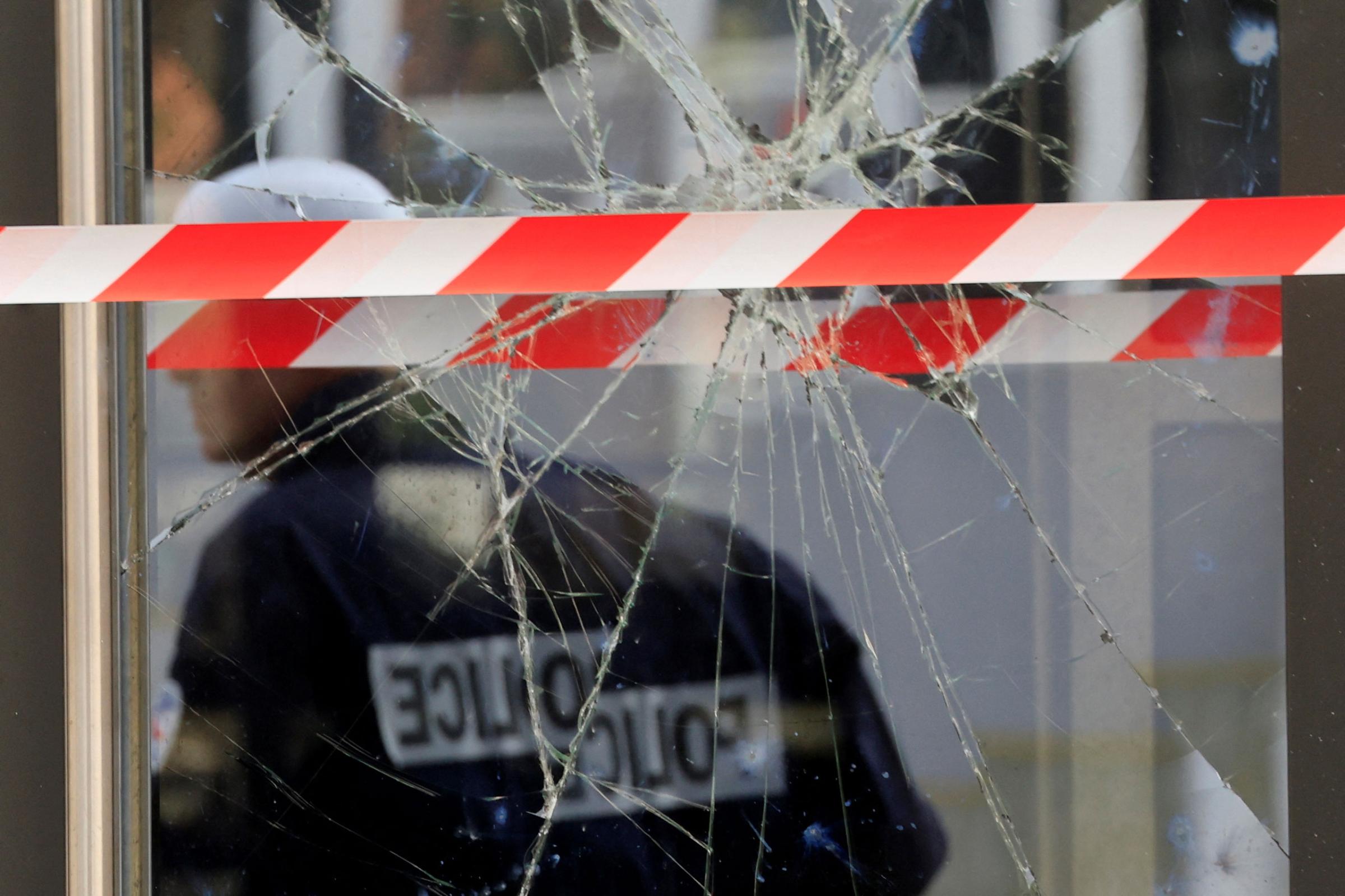
More Must-Reads From TIME
- The 100 Most Influential People of 2024
- Coco Gauff Is Playing for Herself Now
- Scenes From Pro-Palestinian Encampments Across U.S. Universities
- 6 Compliments That Land Every Time
- If You're Dating Right Now , You're Brave: Column
- The AI That Could Heal a Divided Internet
- Fallout Is a Brilliant Model for the Future of Video Game Adaptations
- Want Weekly Recs on What to Watch, Read, and More? Sign Up for Worth Your Time
Write to Armani Syed at armani.syed@time.com
